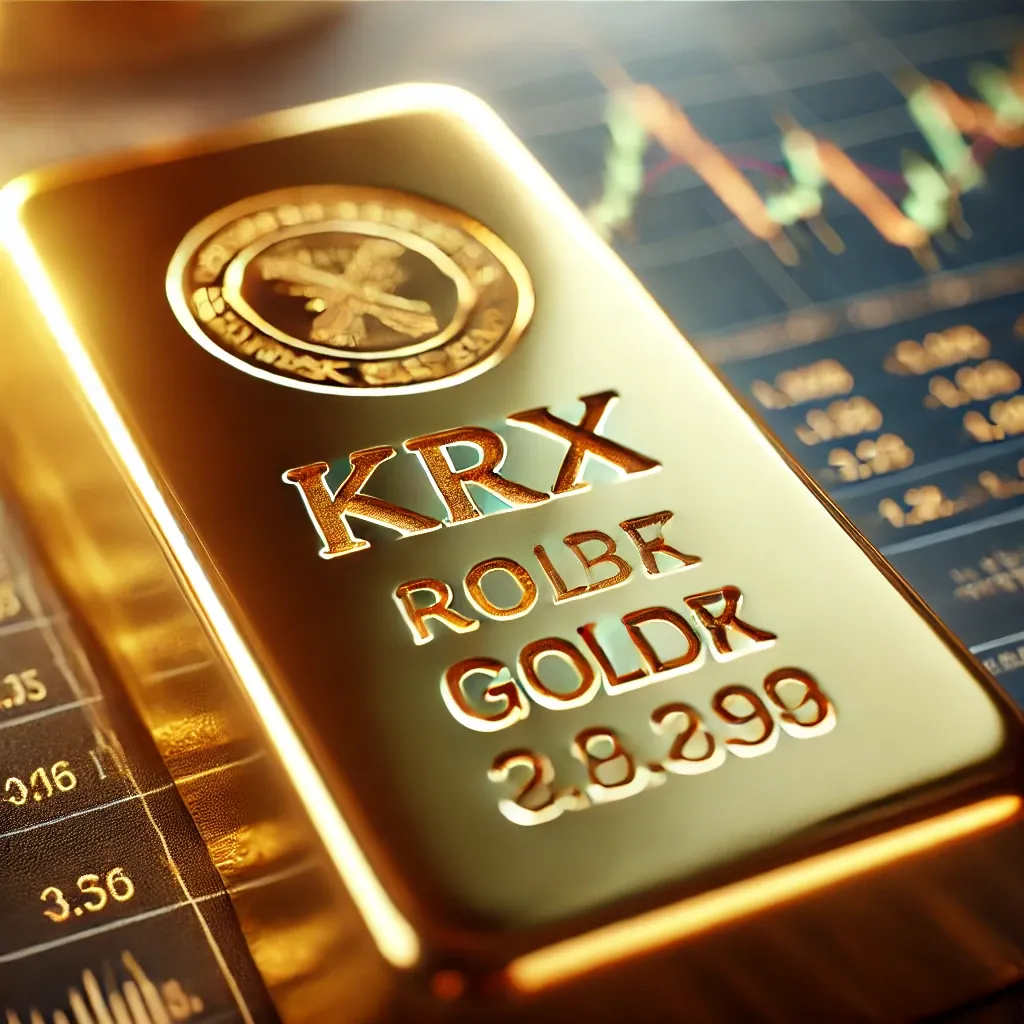Are you curious about the tax implications of gold investment on the KRX? Learn how the KRX gold investment method works, what taxes apply, and how it could impact your investments.
Gold investment is a popular choice for individuals seeking stability and value preservation in their portfolios. When investing in gold through the Korea Exchange (KRX), there are specific tax regulations to consider. Whether you’re new to gold investments or an experienced investor, understanding the tax implications of trading gold in the KRX market is crucial for maximizing your returns. In this article, we will cover three essential aspects of gold investment on the KRX: the tax on gold investment, the KRX gold investment method, and the details of the KRX tax regulations.
Gold Investment Tax
Gold investment has long been regarded as a safe haven for wealth preservation, especially during periods of economic uncertainty. However, just like other forms of investment, gold is subject to taxation. Understanding the specific tax rules associated with gold investment is vital to avoid unexpected financial burdens.
What is the Gold Investment Tax?
In South Korea, gold investment is subject to capital gains tax. The tax is applied to the profit you make from buying and selling gold, which includes physical gold and gold-related financial products. Gold investment through the KRX falls under the category of financial securities, so it is taxed based on the same principles that apply to other forms of securities like stocks or bonds.
Here are key points to consider:
-
Capital Gains Tax Profits made from gold trading, whether physical gold or financial gold products, are taxed as capital gains.
-
Tax Rate The tax rate for gold investment depends on various factors, including the length of time the gold is held, the investor’s income level, and the specific product involved.
-
Tax Filing Investors are required to report their capital gains on their annual tax return.
How is the Gold Investment Tax Calculated?
The calculation of gold investment tax depends on the type of investment. For example, trading physical gold involves a different calculation method than investing in gold futures or exchange-traded funds (ETFs). In general, the tax is calculated based on the difference between the buying and selling price of gold, minus any applicable exemptions or deductions.
To understand the specifics, let’s take a look at some examples:
-
Physical Gold If you buy a gold bar for 100,000 KRW and sell it for 150,000 KRW, your capital gain would be 50,000 KRW, which will be taxed.
-
Gold ETF Similar to stocks, if you invest in a gold ETF and sell it for a higher price than you paid, you would be subject to capital gains tax on the profit.
To get a deeper understanding of how this tax works, click the button below.
👉 Learn More about Gold Investment Tax 👈
KRX Gold Investment Method
Investing in gold through the Korea Exchange (KRX) offers a structured and regulated environment, which gives investors more security compared to informal trading channels. The KRX allows both individual and institutional investors to trade a variety of gold-related products, including gold futures, options, and ETFs.
Common Methods of KRX Gold Investment
The KRX provides several methods for gold investment, catering to different risk tolerances and investment strategies:
-
Gold Futures A contract to buy or sell gold at a predetermined price in the future. This allows investors to profit from price fluctuations without physically owning gold.
-
Gold ETFs (Exchange-Traded Funds) These are funds that track the price of gold. Investors buy shares in these funds, giving them exposure to the gold market without having to own physical gold.
-
Gold Options This allows investors to buy the right (but not the obligation) to buy or sell gold at a specific price on or before a specific date.
-
Gold Mining Stocks Though not directly investing in gold itself, some investors choose to buy stocks in companies involved in gold mining, which can benefit from rising gold prices.
Each of these investment methods has its own set of benefits and risks, so choosing the right one for your portfolio requires careful consideration of your investment goals, time horizon, and risk tolerance.
Advantages of Investing Through KRX
-
Security and Regulation The KRX is a well-established exchange with clear regulatory oversight, providing protection to investors.
-
Liquidity KRX-listed gold ETFs and futures are highly liquid, meaning you can buy or sell quickly without significant price fluctuations.
-
Diversification By using the KRX platform, investors gain exposure to various gold-related financial products, helping diversify their portfolios.
-
Accessibility KRX offers an accessible entry point for both retail and institutional investors to trade in the gold market.
To dive deeper into the KRX gold investment methods, click the link below for more detailed guidance.
👉 Explore KRX Gold Investment Methods 👈
KRX Gold Tax Regulations
KRX gold tax regulations are essential to understand for anyone planning to invest in gold on the exchange. These regulations ensure that the gold market operates fairly and that investors comply with South Korea’s tax laws.
KRX Gold Market Tax Structure
The KRX market’s tax structure for gold investment closely mirrors the taxation of other securities on the exchange, with a focus on capital gains. Here are the primary tax rules to be aware of:
-
Taxable Events The sale of gold-related financial products triggers a taxable event. This includes gold ETFs, futures contracts, and options.
-
Capital Gains Tax Similar to other financial assets, the capital gains tax is imposed on any profit made from the sale of gold.
-
Tax Reporting Investors are responsible for reporting their capital gains from gold trading. The KRX provides a clear record of transactions, but it is still the investor’s responsibility to file accurate returns.
Compliance and Reporting
For compliance with the KRX gold tax regulations:
-
Documentation Keep detailed records of all gold transactions, including purchase prices, sale prices, and transaction fees.
-
Tax Filing The tax on gold investments is filed with the South Korean National Tax Service as part of your annual income tax return.
If you’re looking for more detailed information about KRX gold tax regulations, feel free to click the link below.
👉 Learn More about KRX Gold Tax Regulations 👈
Conclusion
In conclusion, investing in gold through the KRX market offers several advantages, from secure and regulated methods to a wide range of investment options. However, understanding the tax implications is crucial to ensuring that your gold investments are profitable in the long run. By following the outlined tax regulations and utilizing the KRX’s gold investment methods, investors can enjoy a smoother experience with fewer surprises at tax time.
“Gold is a safe investment, but only if you understand the market,” says financial expert Lee Joo-hyun. By staying informed about KRX gold investment tax rules and methods, you can make better decisions and protect your wealth for the future.






